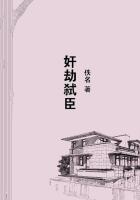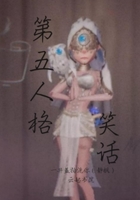"DEAR SIR,--I hear, with considerable surprise, that you continue to forge blades and make handles for Mr. Cheetham. On receipt of this information I went immediately to Mr. Parkin, and he assured me that he came to the same terms with you as I did. He says he intimated politely, but plainly, that he should expect you not to make any more carving-tool handles for Mr. Cheetham, till his committee had received your proposal. He now joins me in advising you to strike work for the present. Hillsborough is surrounded by beautiful scenes, which it might gratify an educated workman to inspect, during the unavoidable delay caused by the new and very important questions your case has raised.
"Yours obediently, "SAML. JOBSON.
"P.S.--A respectable workman was with me yesterday, and objected that you receive from Mr. Cheetham a higher payment than the list price. Can you furnish me with a reply to this, as it is sure to be urged at the trade meeting."
When he read this, Little's blood boiled, especially at the cool advice to lay down his livelihood, and take up scenery: and he dashed off a letter of defiance. He showed it to Bayne, and it went into the fire directly. "That is all right," said this worthy.
"You have written your mind, like a man. Now sit down, and give them treacle for their honey--or you'll catch pepper."
Henry groaned, and writhed, but obeyed.
He had written his defiance in three minutes. It took him an hour to produce the following:
"DEAR SIR,--I am sorry for the misunderstanding. I did not, for a moment, attach that meaning to any thing that fell either from you or Mr. Parkin.
"I must now remind you that, were I to strike work entirely, Mr. Cheetham could discharge me, and even punish me, for breach of contract. All I can do is to work fewer hours than I have done: and I am sure you will be satisfied with that, if you consider that the delay in the settlement of this matter rests with you, and not with me, "I am yours respectfully, HENRY LITTLE.
"I furnish you, as requested, with two replies to the objection of a respectable workman that I am paid above the list price.
"1.--To sell skilled labor below the statement price is a just offense, and injury to trade. But to obtain above the statement price is to benefit trade. The high price, that stands alone to-day, will not stand alone forever. It gets quoted in bargains, and draws prices up to it. That has been proved a thousand times.
"2.--It is not under any master's skin to pay a man more than he is worth. It I get a high price, it is because I make a first-rate article. If a man has got superior knowledge, he is not going to give it away to gratify envious ignorance."
To this, in due course, he received from Jobson the following:
"DEAR SIR,--I advised you according to my judgment and experience: but, doubtless, you are the best judge of your own affairs."
And that closed the correspondence with the Secretaries.
The gentle Jobson and the polite Parkin had retired from the correspondence with their air of mild regret and placid resignation just three days, when young Little found a dirty crumpled letter on his anvil, written in pencil. It ran thus:
"Turn up or youl wish you had droped it. Youl be made so as youl never do hands turn agin, an never know what hurt you.
(Signed) "MOONRAKER."
Henry swore.
When he had sworn (and, as a Briton, I think he had denied himself that satisfaction long enough), he caught up a strip of steel with his pincers, shoved it into the coals, heated it, and, in half a minute, forged two long steel nails. He then nailed this letter to his wall, and wrote under it in chalk, "I offer L10 reward to any one who will show me the coward who wrote this, but was afraid to sign it. The writing is peculiar, and can easily be identified."
He also took the knife that had been so ostentatiously fixed in his door, and carried it about him night and day, with a firm resolve to use it in self-defense, if necessary.
And now the plot thickened: the decent workmen in Cheetham's works were passive; they said nothing offensive, but had no longer the inclination, even if they had the power, to interfere and restrain the lower workmen from venting their envy and malice. Scarcely a day passed without growls and scowls. But Little went his way haughtily, and affected not to see, nor hear them.
However, one day, at dinner-time, he happened, unluckily, to be detained by Bayne in the yard, when the men came out: and two or three of the roughs took this opportunity and began on him at once, in the Dash Dialect, of course; they knew no other.
A great burly forger, whose red matted hair was powdered with coal-dust, and his face bloated with habitual intemperance, planted himself insolently before Henry, and said, in a very loud voice, "How many more trade meetings are we to have for one ---- knobstick?"
Henry replied, in a moment, "Is it my fault if your shilly-shallying committees can't say yes or no to L15? You'd say yes to it, wouldn't you, sooner than go to bed sober?"
This sally raised a loud laugh at the notorious drunkard's expense, and checked the storm, as a laugh generally does.
But men were gathering round, and a workman who had heard the raised voices, and divined the row, ran out of the works, with his apron full of blades, and his heart full of mischief. It was a grinder of a certain low type, peculiar to Hillsborough, but quite common there, where grinders are often the grandchildren of grinders. This degenerate face was more canine than human; sharp as a hatchet, and with forehead villainously low; hardly any chin; and--most characteristic trait of all--the eyes, pale in color, and tiny in size, appeared to have come close together, to consult, and then to have run back into the very skull, to get away from the sparks, which their owner, and his sire, and his grandsire, had been eternally creating.
This greyhound of a grinder flung down a lot of dull bluish blades, warm from the forge, upon a condemned grindstone that was lying in the yard; and they tinkled.
"---- me, if I grind cockney blades!" said he.















